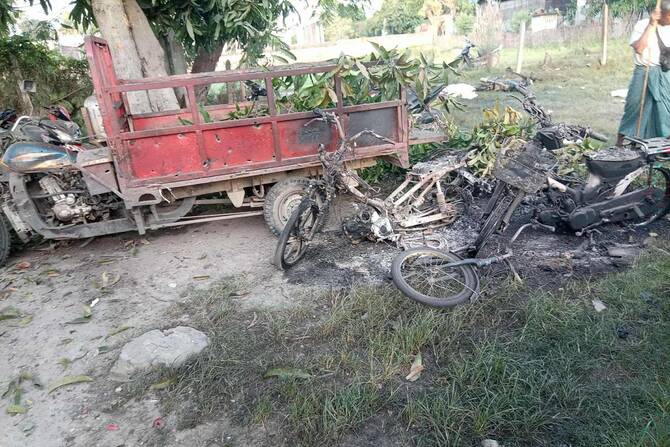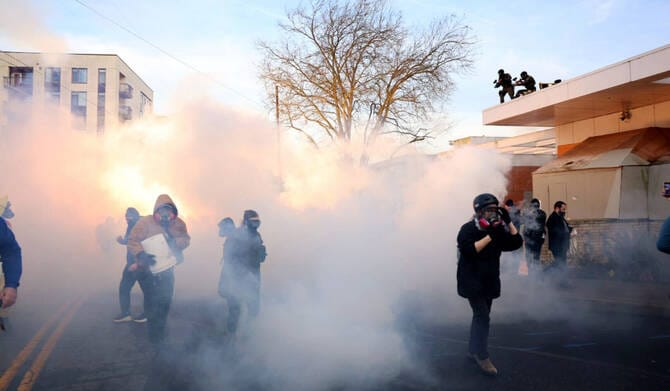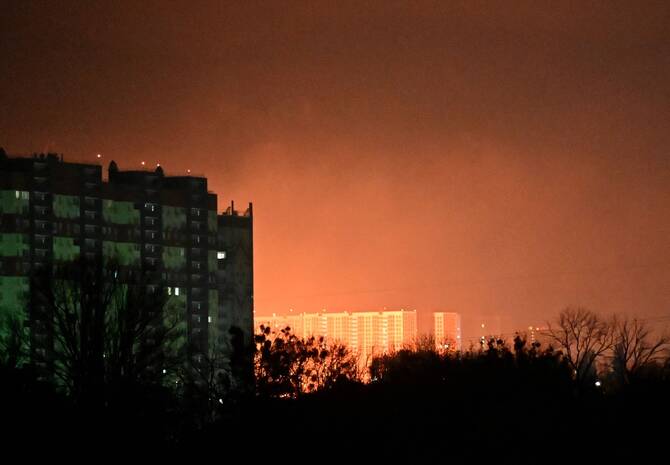Myanmar’s military acknowledges attacking festival, accuses resistance forces of using human shields

Myanmar’s military government on Thursday acknowledged attacking a religious festival held on the grounds of a school in central Myanmar, which witnesses said killed about two dozen people, including children, when improvised bombs were dropped by motorized paragliders.
A statement issued by the military’s information office blamed resistance forces opposed to army rule for the casualties in the Monday night attack, accusing them of “using civilians as human shields in their anti-government incitement campaigns.”
Neither the government nor its opponents reported any armed combat near the scene of the bombing.
The attack took place in Myanmar’s Sagaing region and had already been reported by the country’s independent media and international outlets, including The Associated Press. A spokesperson for UN Secretary-General António Guterres on Wednesday declared that the “indiscriminate use of airborne munitions is unacceptable.”
Witnesses told the AP that the paragliders carried out two sorties, each time dropping two bombs on the primary school compound in the village of Bon To in Chaung-U township, about 90 kilometers (55 miles) west of Mandalay, the country’s second-largest city. The bombs, based on evidence from similar past attacks, were believed to have been 120 mm mortar rounds that explode on impact.
Initial reports of casualties varied slightly, but a member of a local resistance group who attended the event put the death toll at 24. Speaking on condition of anonymity to safeguard his personal security, he also estimated that 50 people had been wounded,
The resistance fighter said that children, villagers, members of local political activist groups and armed anti-military groups were among those killed.
The attack took place as more than 100 people were holding a traditional oil lamp prayer ceremony to mark the end of Buddhist Lent and using the occasion to call for the release of political prisoners and to protest the military’s planned election scheduled for December, which critics believe will be neither free nor fair.
The Sagaing region has been a stronghold of armed resistance since the army seized power from the elected government of Aung San Suu Kyi in February 2021. After peaceful demonstrations were put down with lethal force, many opponents of military rule took up arms, and large parts of the country are now enmeshed in civil war.
Much of the fighting against military rule is been carried out by locally formed armed resistance groups loosely connected in a nationwide People’s Defense Force.
A statement issued Thursday by the military’s information office accused the resistance group of forcing the public to stage the Monday protest and using them as human shields, and said that “the security forces chose to attack as a counterterrorism operation with the plan of minimal civilian casualties.”
The resistance fighter and a local resident who attended Monday’s ceremony rejected the military’s accusations that civilians were forced to protest, saying that people joined the ceremony of their own free will. Pro-democracy street protests remain common on special occasions in areas outside military control, including central regions such as Mandalay, Sagaing, and Magway, as well as Tanintharyi in the south.
In a separate statement, the military said that Malaysian Foreign Minister Mohamad Hasan on Thursday met with Senior Gen. Min Aung Hlaing, Myanmar’s military chief and acting president, to discuss the upcoming election, cooperation in humanitarian aid operations and peace efforts.
Malaysia currently chairs the Association of Southeast Asian Nations, which has been seeking without success to restore peace and stability to Myanmar.




